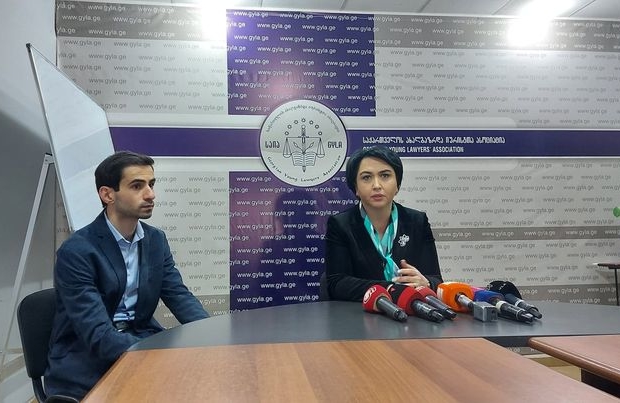NEWS

Blackmailing people with video recording depicting their private life, especially in recent years, has become an important tool used by the government or informal stakeholders to oust individuals from public or political life. It is disturbing that the Georgian authorities are deliberately avoiding the timely and effective investigation of such crimes, thus proving that they have no political will to prevent the practice of blackmail with secret recordings.
Eka Beselias case is one of the cases that clearly show the systemic problem of blackmailing using private life recording and the state bodies' ineffective response to the mentioned facts. As it is known to the public, in January 2019, video recording reflecting the secrets of private life of Eka Beselia has been disseminated on the Internet. The investigation of the mentioned case started on 28th January 2019, however, after more than 2 years after the start of the investigation, the prosecution has prosecuted only those persons who kept and/ or shared the mentioned recording with others, but those persons who were directly involved in the creation of the recording, and, were the initial source for the dissemination of this recording, have not yet been identified.
On 1st April 2021, GYLA got involved in the case of Eka Beselia as an advocacy organization for the victim. GYLA calls on the investigative bodies to direct an investigation process towards an identification and bringing to justice those who were directly involved in the creation and initial dissemination of recording depicting Eka Beselia's privacy. It is critically necessary to hold accountable the initial source, and the government to prove that it does not cover up/ facilitate such disturbing crimes. Otherwise, the syndrome of impunity, on the one hand, has an incentive effect on the recurrence of crime, and, on the other hand, causes the victim to be under constant moral stress, while at the same time having a detrimental effect on the freedom of expression of those people who may be politically active and were disseminated statements that were undesirable to the government.
It should be noted, however, that the campaign "This Affects You Too, We are Eavesdropped Again" has been trying to change the laws and practices governing eavesdropping since 2014 and to protect the constitutional guarantee of privacy. Unfortunately, the ruling coalition that came to power after the 2012 parliamentary elections has not made any systemic changes in this direction. Despite the promise, the Operational-Technical Agency of Georgia still has unlimited access to the data of communication operators and all types of communications between citizens. The impunity of those responsible for the dissemination of secret recordings and the unchanged legal framework give us reason to assume that the Georgian government has no desire to protect the privacy of a citizen in the country.
SHARE: